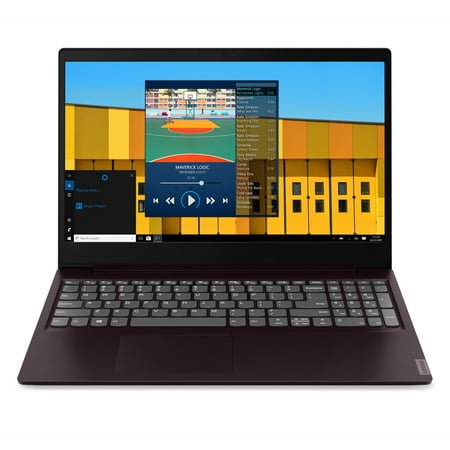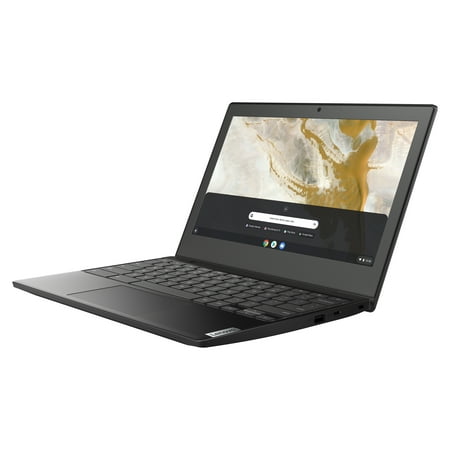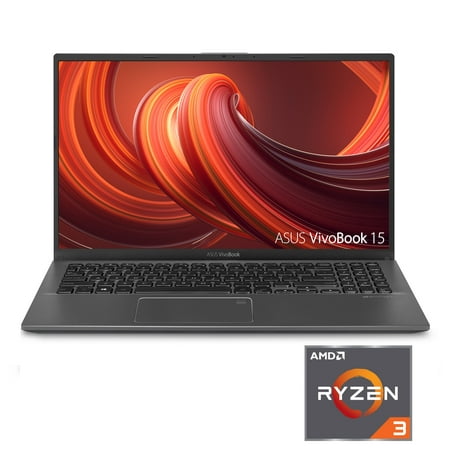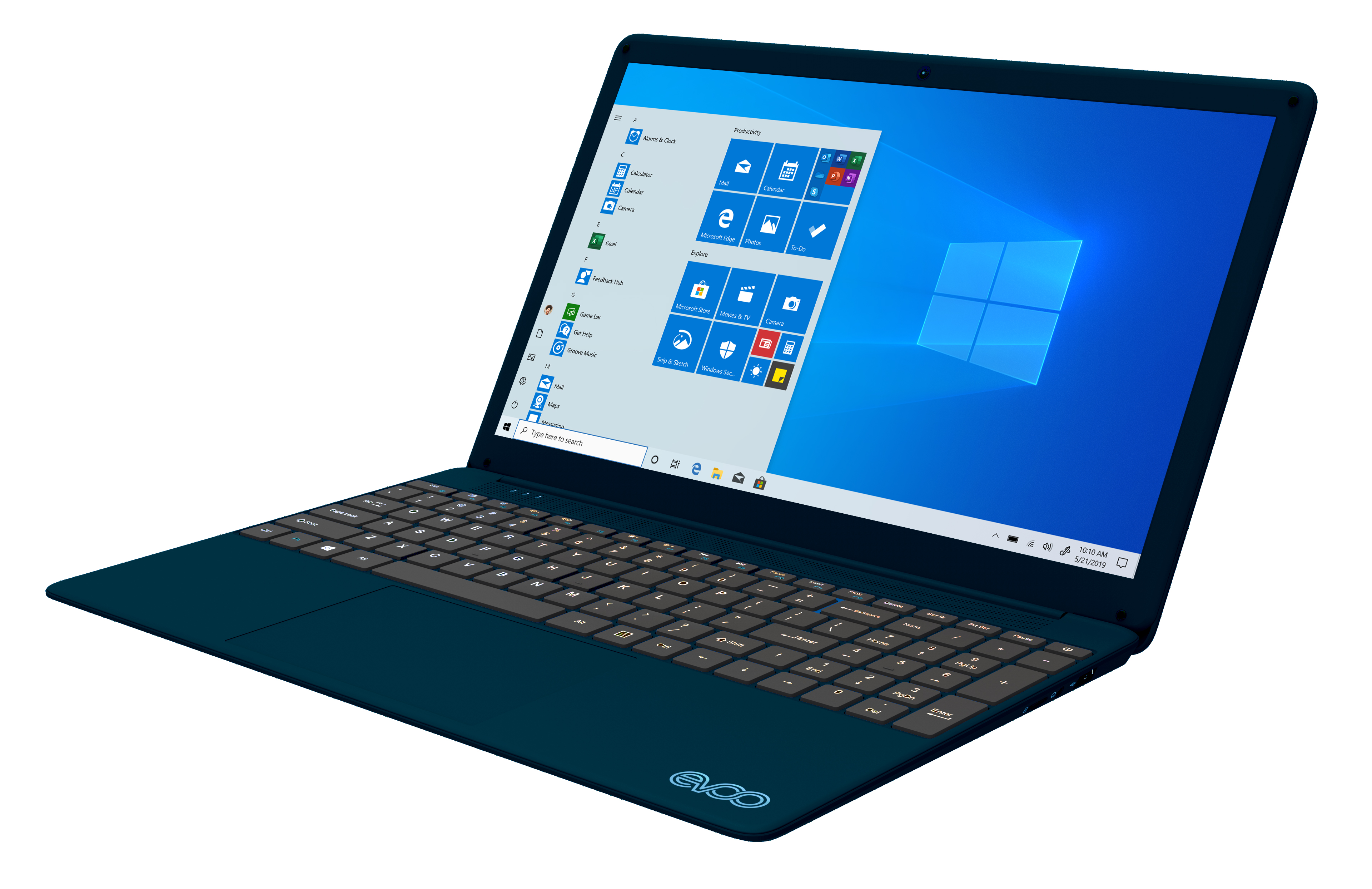LENOVO IdeaPad 3 14″ Laptop – AMD Ryzen 3, 128 GB SSD, Grey
Windows 10 S. AMD Ryzen 3 4300U Processor. RAM: 4 GB / Storage: 128 GB SSD. Full HD screen.
Battery life: Up to 10.5 hours.
A durable, reliable performance
The Lenovo IdeaPad 3 14″ Laptop has got your back. It’s reliable and long-lasting, so you can get your work done. Send that email, finish that assignment. You’ve got this.
Sit back and press play
Whether you’re streaming the latest series or watching some viral videos – your entertainment will look fantastic on the bright 14” Full HD display. The narrow bezel won’t distract you from the drama. And Dolby Audio delivers crystal-clear sound to match the visuals.
Plus, the battery lasts up to 10.5 hours. That’s a lot of Netflix to watch before you need to recharge.
Quick access to all your files
Sick of waiting around for your files to load? Store all the important stuff on the 128 GB SSD. It accesses data faster than a traditional hard drive, so that Word document will load up super-fast.
Microsoft Office & internet security
If you use Word or PowerPoint all the time at work or school, you’ll probably want it on your laptop at home. Click on the Bundles tab above for a great deal on Microsoft Office. Want to protect yourself against viruses? We’ve got you covered with deals on internet security too.
Additional information
| Screen size | 14" |
|---|---|
| Battery life | Up to 10.5 hours |
| Box contents | – Lenovo IdeaPad 3 14" Laptop |
| Dimensions | 19.9 x 327.1 x 241 mm (H x W x D) |
| Weight | 1.6 kg |
| Manufacturer’s guarantee | 1 year |
| Software | * Full version of Microsoft Office not included – Office 365 (30 day trial) |
128 may refer to
- 128 (number), a natural number
- AD 128, a year in the 2nd century AD
- 128 BC, a year in the 2nd century BC
- 128 (New Jersey bus)
- 128 Nemesis, a main-belt asteroid
- Fiat 128, also known as the Zastava 128, a small family car
- SEAT 128, a hatchback based on the Fiat 128
Fourteen or 14 may refer to:
- 14 (number), the natural number following 13 and preceding 15
- One of the years 14 BC, AD 14, 1914, 2014
3 (three) is a number, numeral and digit. It is the natural number following 2 and preceding 4, and is the smallest odd prime number and the only prime preceding a square number. It has religious and cultural significance in many societies.
Advanced Micro Devices, Inc. (AMD) is an American multinational corporation and technology company headquartered in Santa Clara, California and maintains significant operations in Austin, Texas. AMD is a hardware and fabless company that designs and develops central processing units (CPUs), graphics processing units (GPUs), field-programmable gate arrays (FPGAs), system-on-chip (SoC), and high-performance compute solutions. AMD serves a wide range of business and consumer markets, including gaming, data centers, artificial intelligence (AI), and embedded systems.
AMD's main products include microprocessors, motherboard chipsets, embedded processors, and graphics processors for servers, workstations, personal computers, and embedded system applications. The company has also expanded into new markets, such as the data center, gaming, and high-performance computing markets. AMD's processors are used in a wide range of computing devices, including personal computers, servers, laptops, and gaming consoles. While it initially manufactured its own processors, the company later outsourced its manufacturing, after GlobalFoundries was spun off in 2009. Through its Xilinx acquisition in 2022, AMD offers field-programmable gate array (FPGA) products.
AMD was founded in 1969 by Jerry Sanders and a group of other technology professionals. The company's early products were primarily memory chips and other components for computers. In 1975, AMD entered the microprocessor market, competing with Intel, its main rival in the industry. In the early 2000s, it experienced significant growth and success, thanks in part to its strong position in the PC market and the success of its Athlon and Opteron processors. However, the company faced challenges in the late 2000s and early 2010s, as it struggled to keep up with Intel in the race to produce faster and more powerful processors.
In the late 2010s, AMD regained market share by pursuing a penetration pricing strategy and building on the success of its Ryzen processors, which were considerably more competitive with Intel microprocessors in terms of performance while offering attractive pricing.
Grey (more frequent British English) or gray (more frequent American English) is an intermediate color between black and white. It is a neutral or achromatic color, meaning that it has no chroma and therefore no hue. It is the color of a cloud-covered sky, of ash, and of lead.
The first recorded use of grey as a color name in the English language was in 700 CE. Grey is the dominant spelling in European and Commonwealth English, while gray is more common in American English; however, both spellings are valid in both varieties of English.
In Europe and North America, surveys show that gray is the color most commonly associated with neutrality, conformity, boredom, uncertainty, old age, indifference, and modesty. Only one percent of respondents chose it as their favorite color.
IdeaPad (stylized as IDEAPΛD and formerly ideapad) is a line of consumer-oriented laptop computers designed, developed and marketed by Lenovo. The IdeaPad mainly competes against computers such as Acer's Aspire, Dell's Inspiron and XPS, HP's Pavilion, Envy, Stream, and Spectre, Samsung's Sens and Toshiba's Satellite.
A laptop computer or notebook computer, also known as a laptop or notebook, is a small, portable personal computer (PC). Laptops typically have a clamshell form factor with a flat-panel screen on the inside of the upper lid and an alphanumeric keyboard and pointing device on the inside of the lower lid. Most of the computer's internal hardware is fitted inside the lower lid enclosure under the keyboard, although many modern laptops have a built-in webcam at the top of the screen, and some even feature a touchscreen display. In most cases, unlike tablet computers which run on mobile operating systems, laptops tend to run on desktop operating systems, which were originally developed for desktop computers.
The word laptop, modeled after the term desktop (as in desktop computer), refers to the fact that the computer can be practically placed on the user's lap; while the word notebook refers to most laptops sharing a form factor with paper notebooks. As of 2024, in American English, the terms laptop and notebook are used interchangeably; in other dialects of English, one or the other may be preferred. The term notebook originally referred to a type of portable computer that was smaller and lighter than mainstream laptops of the time, but has since come to mean the same thing and no longer refers to any specific size.
Laptops are used in a variety of settings, such as at work (especially on business trips), in education, for playing games, web browsing, for personal multimedia, and for general home computer use. They can run on both AC power and rechargable battery packs and can be folded shut for convenient storage and transportation, making them suitable for mobile use. Laptops combine many of the input/output components and capabilities of a desktop computer into a single unit, including a display screen (usually 11–17 in or 280–430 mm in diagonal size), small speakers, a keyboard, and a pointing device (namely compact ones such as touchpads or pointing sticks). Hardware specifications may vary significantly between different types, models, and price points.
Design elements, form factors, and construction can also vary significantly between models depending on the intended use. Examples of specialized models of laptops include 2-in-1 laptops, with keyboards that either be detached or pivoted out of view from the display (often marketed having a "laptop mode"); rugged laptops, for use in construction or military applications; and low-production-cost laptops such as those from the One Laptop per Child (OLPC) organization, which incorporate features like solar charging and semi-flexible components not found on most laptop computers. Portable computers, which later developed into modern laptops, were originally considered to be a small niche market, mostly for specialized field applications, such as in the military, for accountants, or travelling sales representatives. As portable computers evolved into modern laptops, they became widely used for a variety of purposes.
Ryzen (, RY-zən) is a brand of multi-core x86-64 microprocessors designed and marketed by Advanced Micro Devices (AMD) for desktop, mobile, server, and embedded platforms based on the Zen microarchitecture. It consists of central processing units (CPUs) marketed for mainstream, enthusiast, server, and workstation segments and accelerated processing units (APUs) marketed for mainstream and entry-level segments and embedded systems applications.
A majority of AMD's consumer Ryzen products use the AM4 platform. In August 2017, AMD launched their Ryzen Threadripper line aimed at the enthusiast and workstation markets. Ryzen Threadripper uses different, larger sockets such as TR4, sTRX4, sWRX8, and sTR5 which support additional memory channels and PCI Express lanes. AMD has moved to the new AM5 platform for consumer desktop Ryzen with the release of Zen 4 products in late 2022.






by Shirley
So easy to set up.
by Alan
This laptop is very light and seems to provide good performance. It was competitively priced compared to other, similarly specified laptops. The screen is clear & bright and the keyboard is acceptable. Although the storage is limited (128GB M.2 SSD), there is space to add an additional SATA SSD for further storage.
by Stephen
Lightweight but good screen size.
by Jade
Very quick, small and compact, good picture quality, voice command.
by Koren
real easy to set up.